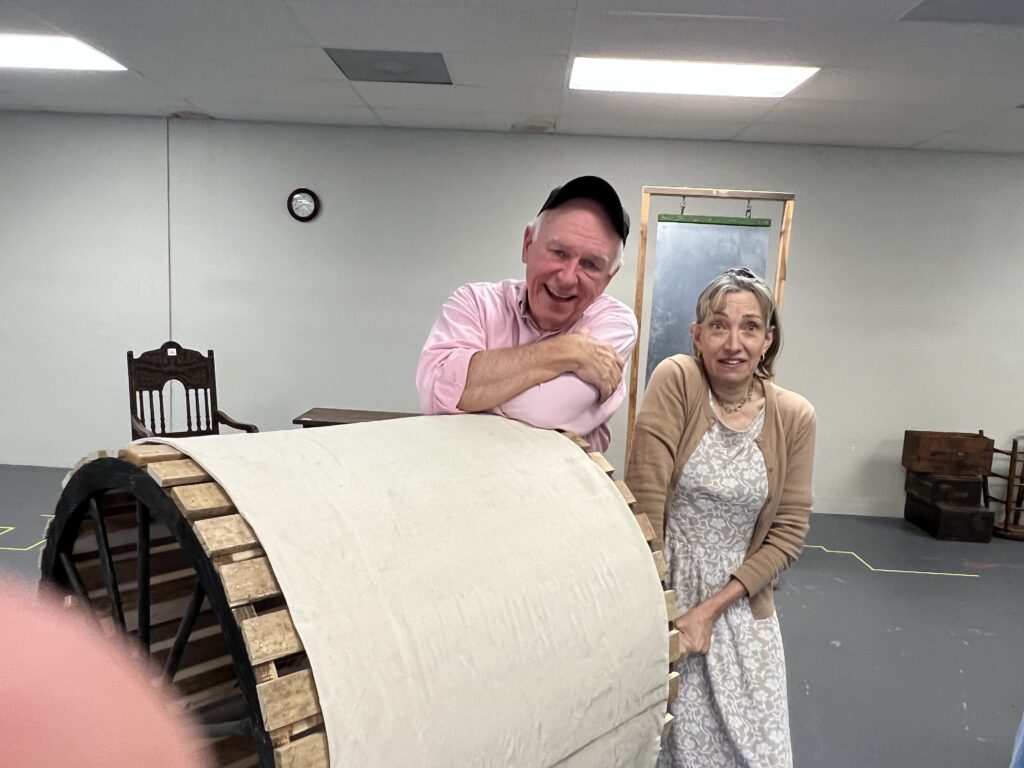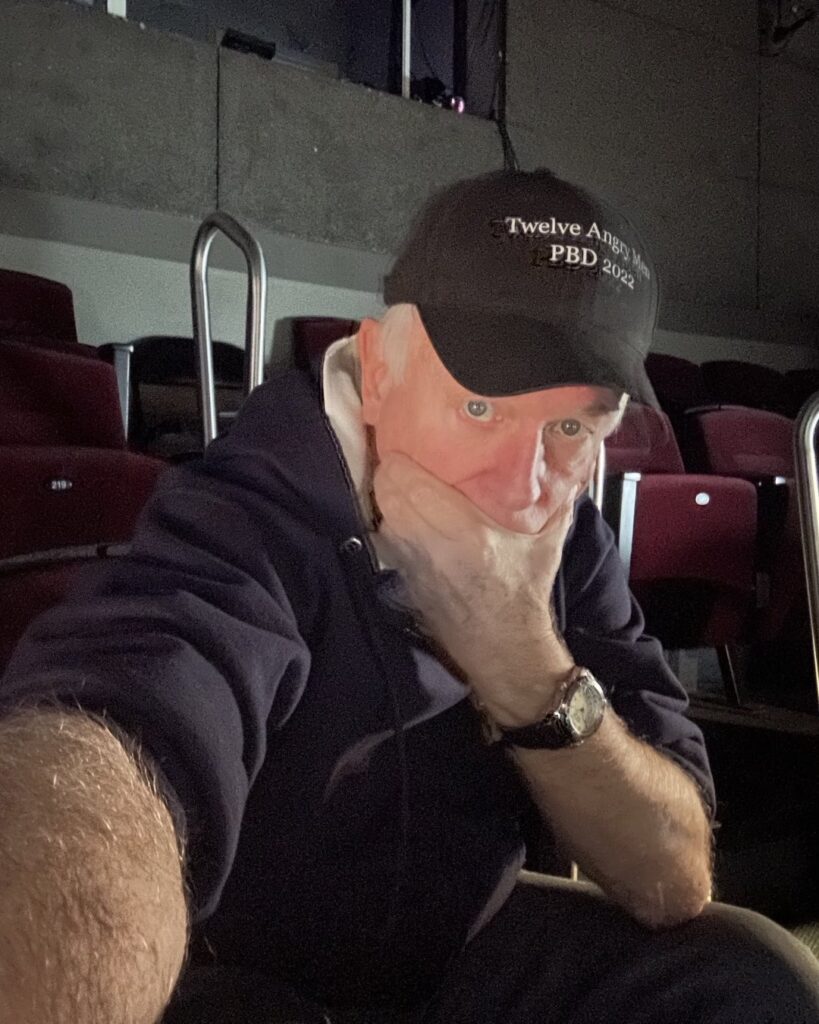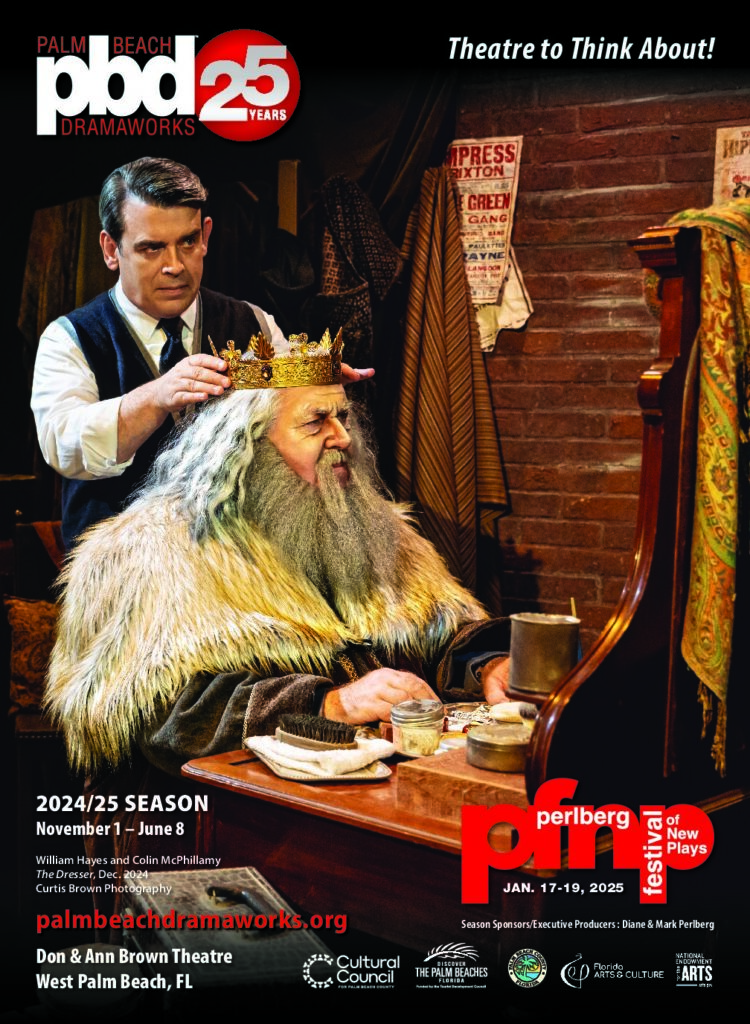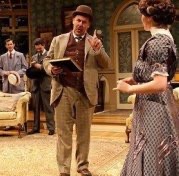… Until the show is over.
Commonly, the reasons given are… because it makes you self-conscious, because it messes with your confidence, because you shouldn’t believe your own publicity, and so on along those lines.
I believe I have the reviewer story to end them all. And even though this happened more than three decades ago, the memory is still painful. Here is the story:
It was my third job as a professional. I was cast as Herbert Pocket in Great Expectations, adapted from Charles Dickens’s novel. We were to open at the Birmingham Rep in the UK, play for a month, and then transfer to The Old Vic in London for the Christmas season.
Herbert Pocket is one of Dickens’s more agreeable creations; gentle, sensitive, but also energetic and enthusiastic. In the mid-20th century black and white film a young Alec Guinness plays him to a young John Mills as Pip.
I was young. A young actor full of that same energy and enthusiasm as Herbert Pocket, and thrilled to have scored this gig. It was directed by a complicated man who projected his inner darkness upon his actors in a way I have rarely seen since.
This man, the director, who had also adapted this version of Great Expectations, was a fine exponent of the 101 ways a director can destroy an actor in the rehearsal room. From me, he demanded an instant performance. This happens when the director has little or no regard for process and is consumed with insecurity about what the final result will be.
If there was a positive in the episode it was where I began to assemble the director-proof kit that every actor should have in their back pocket. You only need it sometimes, but when you do, you better know where it is.
Somehow I managed to give the performance that the director seemed to want by day three of rehearsals. Fine, you might think. Not so. Why not? Because, and this is crucial, because I did not know how I did it.
To begin with it all went well. Herbert Pocket and I seemed made for each other and our scenes were funny and audiences liked them. Then, during the pre-London run and for reasons known only to himself, the director began to fire the actors at random at the rate of one a week. This quickly transformed a large happy company into a large unhappy company riven with suspicion and paranoia.
Then there came a day, as can so easily happen in comedy, when for no visible reason my stuff wasn’t funny and the scenes played like a lead balloon.
Some laughs are mercurial. They come, they go. If a laugh checks out during the run of a show, the best thing to do is relax. Gently experiment with nuances of delivery and focus, make sure you are playing the scene, not the comedy, and carry on. Did I do that?
No. I tried to make the scenes funny again. The harder I tried the less funny they were.
Meanwhile I had been in correspondence on another project with one of the critics on the London Times.
When we opened in London, the critic came to see the show. By this time the show, which had begun with promise, had become a lumbering Dickensian juggernaut, too long, too slow, performed by a company that knew it was involved in a disaster.
So the critic from the Times saw the show, which he loathed (with good reason). The review was one of the more scathing ever written and he singled me out for special condemnation. When I read it the next morning, hoping against all the probability that it would be positive, it was like a sledgehammer to my confidence, and I nearly gave up acting on the spot. That was bad enough but …
But here’s the thing; the critic from the Times saw the show, phoned in his copy, went home, and died in his sleep that night.
I wished the man no ill, but it did cross my mind to think, “If he was gonna die, why couldn’t he have died three hours earlier?”
And that, is the real reason I never read reviews.
And does that apply when the reviews are good?
You bet. There’s no surer way to mess up a performance than if you believe it when people tell you how good you are. “When Colin McPhillamy shakes the tea-pot, opens the sardines, and dances a jig on a pogo-stick, there is a delicate sunrise of joy that casts a gossamer spell over the stage.” – Oh yeah? And the odds are a hundred to one against Colin McPhillamy ever getting the moment right again.
So right now, I’m in a hit. And there are some great reviews – how do I know that? Because people say things like, “Hey, what about those great reviews?” And I say, “Don’t tell me!”
I have not read them, and will not until after we close, but if you’re interested go here
And while I’m at it let me give a shout out to the amazing design team we had on this one; Franne Lee for costumes, Paul Black for lighting, Victor Becker for the set, and Steve Shapiro for sound. I should have mentioned them in previous posts about this play. Their work both singly and collectively was outstandingly exquisite. You can say I said so.
But what ever you do – don’t tell me!



















